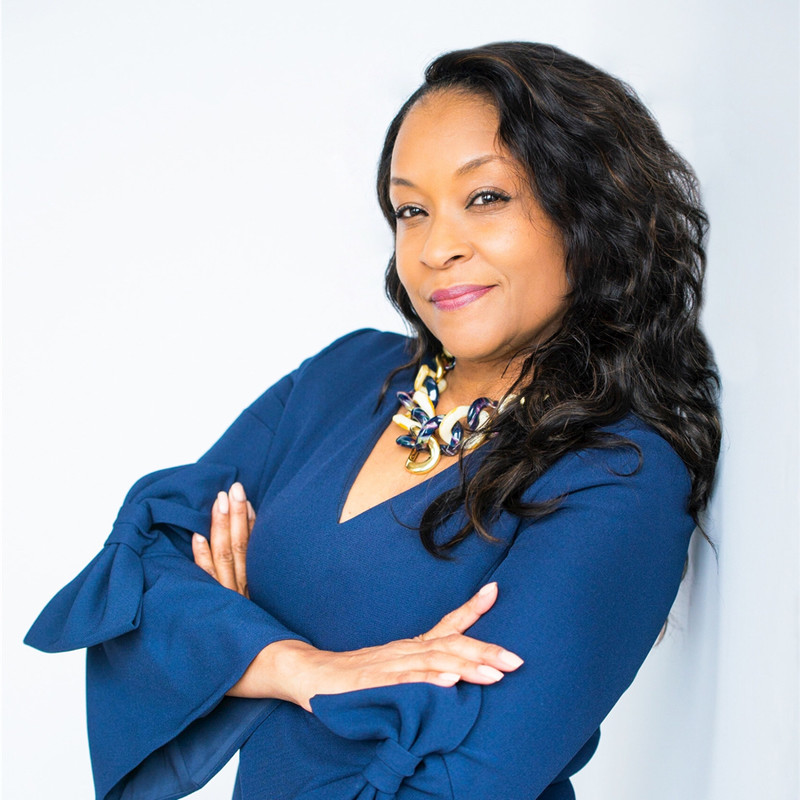It’s fascinating how many of the diversity leaders we profile never considered a career in an HR or a diversity role until they stumbled into one and discovered their passion. Our focus for this installment, however, is an example of someone who dedicated her career to the HR function from the very beginning.
Yolanda Chase is Chief Diversity Officer at the Washington Technology Industry Association (WTIA) and is responsible for driving inclusive workplace and employee experience strategies across the entire organization. Her insights are shaped by more than 30 years of HR; organizational development; and diversity, equity, and inclusion (DEI) expertise.
Chase came to WTIA from Arrow Electronics, a company that advises technology companies around the globe. As the global director of Work(place) Forward—Global Inclusion and Diversity at Arrow, Chase initiated and led the DEI employee experience across the global enterprise, which includes nearly 20,000 employees across more than 300 locations. In that role, Chase worked to align efforts on inclusion and diversity advancement throughout corporate leadership.
During her time at Arrow, Chase also worked to boost female representation throughout the Arrow talent pipeline and to drive organizational employment and culture brand transformation. On top of all that, Chase planned and executed a cultural competence digital learning module for the company.
Currently, in addition to her work at WTIA, Chase is a well-respected public speaker and has built her own DEI brand and methodology—Diversity Way-Maker Consulting, a consultation and strategic solutions firm that enables inclusion and belonging in workplaces across the globe.
Before her work at Arrow, Chase started her career in organizational development with EG&G, a government contractor that supported the Department of Energy in managing its Rocky Flats plant.
“Throughout my career, I’d say I’ve done nothing else but HR starting off in an organization wanting to get at the more personnel kind of tactical and specialist aspects of human resources,” she says.
A Focus on the Employee Experience
Chase says that, from her early days doing mostly generalist HR work, she soon found herself doing a bit more strategic work in the HR function. “That’s when the industry developed the whole HR business partner concept,” she explains. “So, having worked in employee relations and really understanding the pain points of an organization, I knew that my specialty was really focused more on the employee experience.”
Chase places great importance on the need to regularly evaluate and assess the effectiveness of programs sponsored by the HR function and to think about how those programs contribute to strategic change.
DEI as a Strategic Initiative
Chase sees DEI efforts as having tremendous strategic value for organizations as an essential part of corporate strategy. It’s this strategic significance, among other factors, that makes executive buy-in, sponsorship, and support of corporate DEI efforts absolutely essential, she says. Simply put, corporate leadership is responsible for corporate strategy, and DEI is increasingly recognized for its importance to the broader corporate strategy.
Dismantling Systems of Inequality
Chase’s position at WTIA puts her at the epicenter of an industry that has perhaps the most strained relationship with DEI. The broader tech industry has become the poster child for male-dominated organizations that are heavy on white and Asian-American staff and short on black and brown employees.
One of the reasons companies in the tech industry have struggled to address their DEI challenges is that the problems are often more systemic than company-specific. It’s not necessarily the case, for example, that Company ABC has created a diversity problem for itself; it’s more likely that Company ABC is struggling with the same diverse worker recruitment and retention challenges that impact the industry as a whole and stem in part from disparities that can be traced way back to K–12 settings.
One initiative Chase and WTIA helped spearhead was working with organizations to secure pledges to address DEI challenges within their organizations. “The goal was to receive commitments, signatories from organizations to dismantle systems of inequality within their organizations by 2025,” she explains.
“So, Michael Schutzler, the CEO of WTIA, looked at my skill set and my experience and determined that not only was I capable of leadership and advancing this roadmap, but also of creating the roadmap for other organizations to do that,” Chase adds. “We need to understand what’s happening and what needs to happen systemically within my organization, in order for us to achieve that goal of dismantling systems of inequality.” That includes considering cultural values and looking for inequities, not only as people leaders but also from talent acquisition all the way through the employee life cycle.
Equity as the Focal Point of DEI
When addressing the continuing challenges of DEI efforts across industries and organizations, Chase says it’s important to focus on equity as the focal point of diversity and inclusion efforts. A great example of this, Chase says, is the continued disparity in incomes between men and women and between white employees and employees of color.
“We’re seeing both individually and collectively within organizations that employees do not feel like they have an opportunity to be able to be promoted within their organizations or to achieve pay equity within their organizations because of their race, ethnicity, and sexual identity,” Chase notes.
“As long as that is still happening, we’re not doing the work that needs to be done.” It’s a challenge that Chase accepted long ago and one she will continue to champion through her role with WTIA—and wherever her future may lead.
Lin Grensing-Pophal is a Contributing Editor at HR Daily Advisor.

